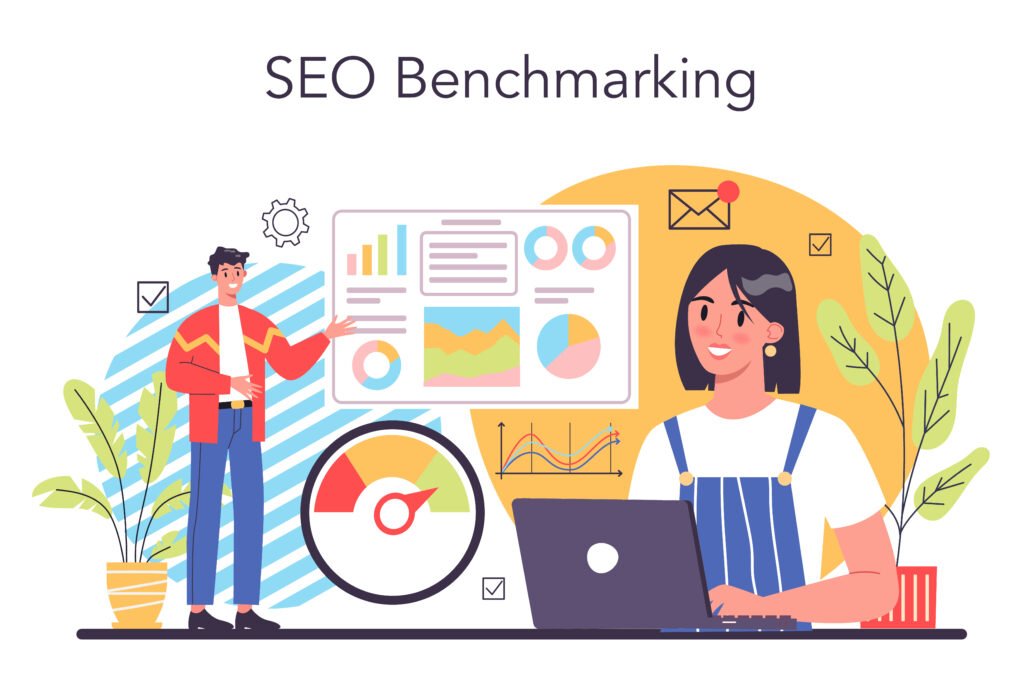
SEO Vs Content Marketing? Let’s get started. You have spent valuable time and tremendous effort crafting an excellent piece of content worth reading. But it does not appear in the Search Engine Result Pages (SERPs), right?
Do you know the reason?
Well, search engine algorithms prioritize the content that people love to read. Furthermore, they also spend their time reading it.
Both search engines and readers want highly authoritative content relevant to the query.
SEO Vs Content Marketing
Search Engine Optimization (SEO) assists you in ranking the web pages on SERPs by targeting the right keywords, optimizing on-page content, and building backlinks that strengthen your authority.
On the contrary, content marketing helps you to entertain, educate, and inform readers through impeccable content.
It is not necessary that SEO professionals and content marketers have the same goals. SEO experts strive to generate site traffic, and content marketers focus on brand awareness.
SEO and content marketing do share one thing in common: content. Other than that, SEO Vs content marketing exists.
Yes, it is content!
Quality content is the base of SEO and content marketing. They both are incomplete without content. For example, you can rank on Google if you have well-crafted content.
On the other hand, you cannot expect your pages to perform better in the search results if they have weak content.
Therefore, you need to integrate content marketing with effective SEO strategies. Content marketing without SEO is like a car without petrol. So, you have to treat both of them equally if you want to flourish your business.
How Do You Align Content Marketing And SEO To Drive More Traffic From Your Content Marketing Efforts?
Read out how to integrate both these elements.
1. Determine Your Benchmarks

If your site is authoritative in Google’s eyes, your content will impress both ranking and readers. Therefore, your content marketing and SEO should begin with one thing: authority.
So, you should figure out how to make your site authoritative in your industry. This is called a benchmark that helps you achieve perfection in your content marketing efforts.
Choosing a benchmark that portrays leadership traits in content marketing is significant. After identifying the benchmark, you should make brief notes of the following:
- Content Metrics
What are the strategies of your competitors in creating the content? How do they update and share their content?
- SEO Metrics
SEO metrics are referred to as keywords, backlinks, and organic traffic. Analyze your competitors and discover their SEO strategies.
- Social Metrics
Social metrics are referred to as Facebook, Twitter, and Instagram. You must determine how often your competitors share content on these social media platforms.
2. Give Proper Structure To Your Content
Proper structure and clarity help you to rock Google’s stage. Every single topic of your site should focus on a central idea.
You should satisfy the user with your content. Simple language in your content would be best so that both Google and users understand it effortlessly.
For this, you have to explain the topic pretty well. Moreover, you must focus on one keyword surrounded by multiple supporting keywords.
Before jumping into the writing phase, you must conduct detailed keyword research. It will help you to understand the needs of your potential prospects. Today, multiple keyword research tools such as SEMrush and Ahref will help you to determine:
- Primary and secondary keywords
- Keyword difficulty
- PPC rates
- Monthly search traffic
Keyword research will help you to pave the way to online success. There are several benefits of keyword research, such as:
- Attracts Target Readers
One of the main advantages of keyword research is that it helps you reach potential prospects who care about your content. Users will easily find your content if you incorporate some specific keywords in the article.
Therefore, you have to stick to those keywords and craft fantastic content.
- Boosts Conversion Rates
In addition to driving traffic to your site, keyword research also helps you increase conversion rates. Targeting the right people with your best-fit keywords will assist you in converting the site visitors into regular customers.
More conversions will drive more money.
Use An Online Notepad Tool To Shape The Content
An online notepad tool helps you to structure your content. The “Rich Text Note” feature of the Notepad online tool assists you in keeping your site content engaged and structured. Using this free notepad, you can do proper formatting of your text.
To throw light on specific points, you can change the font faces of your content and add bullet points, quotations, and images to your text.
Another fantastic thing about using an online notepad is its built-in grammar checker. It removes all the grammatical mistakes from your content and makes it error-free.
Most significantly, it is absolutely free to use.
3. Say Bye-bye To Keyword Cannibalization

All topics demand in-depth coverage.
Accordingly, you must craft a particular page for every single topic.
You need to remember one thing:
Avoid covering a specific topic in more than one.
Ask yourself these questions:
- Did I comprehensively cover that specific topic?
- Should I tweak the existing content?
You should keep updating the existing page from an SEO viewpoint. To compete with
piles of published articles, you first need to compete with yourself.
This way, you can create evergreen content that ranks on Google.
This is where you need to understand keyword cannibalization.
What actually the keyword cannibalization is?
When numerous pages compete to rank on the first page, it is called keyword cannibalization.
It hurts your SEO strategies.
Before starting to write on a topic, you must visit your published articles and blog posts and ensure that the topic you will write about is not covered yet.
Harmful Impacts Of Keyword Cannibalization
- Dilutes your anchor text
- Demolishes your page’s authority
- Google does not like it
- Shows that your page is poor
- Lowers your conversion rate
Here are three ultimate solutions to this problem.
- Restructure Your Site
Turn your highly authoritative page into a landing page – that links to other pages that fall under focused keywords.
- Craft Brand New Landing Pages
A well-knit landing page lets you enlist all your products in a single place. It will also help you include long-tail keywords in it.
- Come Up With New Keywords
You must develop a properly planned keywords strategy with a diverse-page site.
You should also find new keywords for your pages. Plus, make sure your target keywords clearly describe your page’s content.
Will your content satisfy your target readers?
If you respond with no, you should do keyword research.
4. Do Competitor’s Analysis
Many SEO experts keenly analyze competitors’ pages to:
- Identify their content marketing strategy
- Know how they are performing well
They take full advantage of keyword research tools to determine competitors’ pages. When you analyze competitors’ pages, you can gain a deeper insight of:
- Content formats
- Content structure and length
- Target audience
- Keyword ideas
This crucial information will help you write compelling content that reaches your target potential.
5. Develop Offset Content Platforms
You should also have an offset content asset. It will give you two perks:
- Build authority
- Give you backlinks
Establishing high authority will help you build your brand awareness. Backlinks will strengthen your SEO position.
What off-site assets can you use?
- Creating infographics that link back to your websites
- Guest posts on highly relevant sites with a considerable amount of audience.
- Post your published content in the form of videos and presentations.
6. Make Use Of The Primary Keyword
Along with off-site tactics, you should also focus on on-site strategy. As stated earlier, you can make your content optimized with above stated keyword-centric strategies.
Now is the time to ensure that your written content suitable fits SEO parameters. When Google starts understating your content’s context, it will automatically prioritize your content.
As a result, it will skyrocket the ranking.
You have to treat Google and users just like a kid. Ensure that your written material is comprehended by both of them. Consider including the primary keyword in the content:
- URL
- Meta title and description
- Headline
- Opening paragraph
It will enable Google and readers to know what your topic is about.
Final Thoughts
In a nutshell, you should align SEO with content marketing so that users get relevant and engaging content. If you have an eCommerce store, you should craft content that grabs readers’ attention.
This demands a top-notch SEO strategy.
SEO will help you structure your content; therefore, it should be your top priority.
SEO Vs content marketing? No, they need to be well-coordinated. This is the only reason why multiple content marketing companies hire SEO specialists. I hope this article brushes off all your SEO and content marketing complexities. Focus on these two elements at the same time.








No Comments